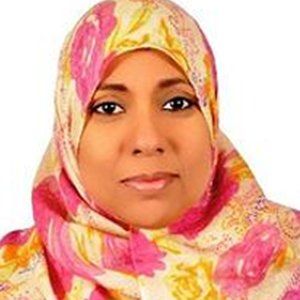Public Health
and Epidemiology
"Pandemics, Conflicts and Beyond"
INTERYem Public Health and Epidemiology
Why Yemen?
Yemen remains the poorest country in the Middle East. The levels of unemployment and illiteracy of Yemen are the highest in the Middle East, and amongst the worst in the world. Following almost a decade of internal conflict, millions of Yemeni people have been forced to flee their homes and seek refuge internally or abroad. Half the population are unable to meet their food needs, three quarters do not have safe water, and over 80% need some type of humanitarian assistance, with marked increases in severe acute malnutrition and limited availability of vaccines confounding the situation. The health infrastructure in Yemen has been decimated, and the future recruitment of healthcare professions has become even more precarious.
The authorities in Yemen recognize the importance of public health programs in reducing the incidence of disease, disability, and the effects of aging and other physical and mental health conditions. However, as with many other countries, public health in Yemen generally receives significantly less government attention compared with clinical medicine. Ideally, collaboration between local health and government agencies would improve public health; however, such
coordination arguably remains weak in Yemen. The lack of intertwined public health work means that practitioners continue to struggle, for example, in the provision of vaccinations which has led to an increase in the morbidity and mortality associated with communicable diseases. With the introduction of COVID19 in Yemen, many of these issues have become magnified.
World Health Organization
The World Health Organization (WHO) has previously identified the objectives of public health as: providing leadership on matters critical to health and engaging in partnerships where joint action is needed; shaping a research agenda and stimulating the generation, translation and dissemination of valuable knowledge; setting norms and standards and promoting and monitoring their implementation; articulating ethical and evidence-based policy options; monitoring the health situation and assessing health trends. For Yemen in particular, the lack of resources allocated to public health surveillance programs has led to the detriment of early warning systems in the numerous public health emergencies present; therefore, this has led to serious challenges in implementing interventions towards meeting the necessary goals in averting or minimizing such risks. This is compounded by the fragility of systems to monitor and clarify the epidemiology of health problems, allow priorities to be set, and inform health policy and strategies; and thence to diagnose, investigate, and monitor health problems and health hazards within Yemeni society.
The weakness of public health surveillance has led to difficulties in identification and prioritization of many public health issues facing Yemen today, including not only communicable diseases such as cholera and diphtheria, but also non-communicable diseases which are increasing in prevalence in Yemen, such as diabetes and cardiovascular disease. For many in Yemen, focus on communicable diseases risks not underestimating the forthcoming rise in population level morbidity that is likely to develop due to non-communicable diseases.
Health Spending
As with many low resource countries, there is a significant disparity in health spending between Yemen and its richer neighbours in the Middle East: $73 per capita per annum in Yemen (less than that of the average for sub-Saharan Africa), compared to $1800 in UAE. Challenges to effective healthcare are as with many other low resource countries: fragility of public health infrastructures; lack of trained health workers; lack of governmental resources; and all this is multiplied of course due to conflict. Furthermore, expenditure on public health care is not the same as expenditure of healthcare; Yemen’s authorities must, like many others, make difficult choices as to their budget allocations.
The health of members of vulnerable groups in Yemen is further endangered by the pre-existing structures of health, and now more so by the conflict: maternal and child health, exacerbated by malnutrition and poverty, remain precarious; refugees and displaced people continue to struggle with adequate access; and the disparities between urban and rural setting becomes more apparent.
Training and continued clinical education (CCE) in public health and epidemiology (PHE) is vital for Yemen’s present and future aspirations of being able to prevent disease, promote health and provide cost-effective healthcare to its population. The cost-benefits of investing in public health initiatives, based on an adequately trained PHE workforce, would be significant.
INTERYem's Motivation
INTERYem has Training, Education and Research as its three founding motivations.
We know that Yemen’s healthcare professionals are dedicated and knowledgeable but often lack opportunities to develop in areas that are needed for improving patient outcomes. We believe that the future of the health of Yemen’ population resides in the capacity of its healthcare professionals, and the more prominent the need for capacity building in a particular speciality to improve patient outcomes, the higher it ought to be as a priority for training; hence the need to prioritise public health and epidemiology (PHE). INTERYem does not wish to, and cannot replace, the training of PHE colleagues in Yemen, but rather hopes to identify gaps in expertise and training, and then to try to fill those gaps by exchanging ideas, sharing expertise, and building friendships, with partners from other countries.
The identification in gaps in expertise and training needed by colleagues in Yemen is very much demand-driven; training courses must be recognised as being required for the improvement of patient outcomes. The development of training courses in PHE should involve all stakeholders, including ministries of health and education, medical schools, universities, hospitals, students/trainees, and patients, so that a comprehensive understanding of the objectives for training can be met and delivered. However, PHE courses need to be resource-efficient and realistic in their ambitions. To ensure quality, PHE courses should be developed using appropriate training models and accreditation from external bodies sought (although the latter can be very expensive and time-consuming, and decisions need to be made as to the best use of spending funds). A key aspect of INTERYem’s PHE training is dissemination of the knowledge and skills developed by participants to other PHE colleagues within Yemen who are unable to attend courses.
INTERYem Public Health Conference
"Pandemics, Conflicts and Beyond"
Call for papers from colleagues in Yemen to present at the conference.
-
Online Conference
Learn more →9th/10th April 2021
Free to attend for colleagues in Yemen
-
Send abstracts on the conference theme to:
Learn more →communications@interyem.co.uk
Closing date for abstracts: 13th March 2021
-
Further Information
Learn more →INTERYem and Public Health & Epidemiology
Interyem.co.uk/phe
Anticipated Audience
- Public health doctors
- Epidemiologists
- Allied public healthcare workers
- Students interested in public health
- Non-PHE doctors who wish to accrue CCE
- Non-governmental organisations with public health dimensions
- Policy makers
- Non-PHE who have an interest in the topics
- Allied Public Health Professionals
Invited Speakers
Prof Michael Marmot
- Professor of Epidemiology at University College London
- Director of the UCL Institute of Health Equity
- Past President of the World Medical Association
- The author of ‘The Health Gap: the challenge of an unequal world’
Prof Muhammad H Zaman
- Howard Hughes Medical Institute Professor of Biomedical Engineering at Boston University in the United States
- Author of 'Bitter Pills' which looks at the global challenge of substandard and counterfeit drugs
- Author of Biography of Resistance which is focused on global antimicrobial resistance
- Winner of Guggenheim Fellowship (2020) for his work on antibiotic resistance in refugee camps.
Prof Laurent A. Lambert
- Professor at the Doha Institute for Graduate Studies, in Doha, Qatar
- was previously the Acting Director of the Qatar Humanitarian Innovation Lab initiative (QHIL), at Qatar University
- Currently working as a sustainable development researcher, project/program manager, consultant and government adviser in the fields of international and environmental risks and public policy over the past 15 years.
- Former Advisory Board member of the United Nations Climate Convention's centre in charge of green technology transfer (the CTCN)
Prof Abdul-Wahed Al-Serouri
- Professor of Community Health, at the Community Health Department in the Faculty of Medicine and Health Sciences at Sana'a University, Yemen
- Technical advisor of Yemen Field Epidemiology Training Program that is run by the Ministry of Health
- Distinguished career in both quantitative and qualitative research in field of epidemiology and public health.
- Worked as a consultant with many international organisations, including UNICEF, WHO and GTZ
Prof Huda Basaleem
- Medical doctor who has her Masters in Public Health from Egypt and her PhD from Malaysia
- Vice-Dean at the Faculty of Postgraduate Studies and Research and Professor in Community Medicine and Public Health in the Department of Community Medicine at the University of Aden
- Director of the Aden Cancer Registry and Research Centre, Faculty of Medicine and Health Sciences, University of Aden
- Member of the Committee of International educational activities, at the National Academies of Science of the USA
Dr Lola Dare
- Community physician, epidemiologist and social development consultant.
- Currently Chief Executive Officer of the Centre for Health Sciences Training, Research and Development (CHESTRAD).
- A member of the West African Postgraduate Medical College in the Faculty of Public Health and a fellow of the Nigerian National Postgraduate Medical College in the Faculty of Community Medicine.
Prof Daniel Flecknoe
- Consultant in public health at Buckinghamshire Council with a background in A&E nursing and humanitarian aid work.
- Founder and co-chair of a national working group on the public health impacts of armed conflict.
- Alumnus of the health & human rights programme at Harvard University, and was awarded the Faculty of Public Health’s 2019 Synergy Award
Dr Awsan Bahattab
- Medical doctor who has specialized in international health.
- Worked as a demonstrator, then as a lecturer at the Faculty of Medicine and Health Science, University of Aden, where she taught several public health courses for medical and health.
- Worked as a consultant for several NGOs in Yemen. She has research experience in community and health service research.
Dr Aula Abbara
- Consultant in Infectious Diseases and General Internal Medicine at Imperial College NHS Healthcare Trust in London.
- Honorary Clinical Senior Lecturer at Imperial College, London. She teaches and supervises students on the Global Health degree course at Imperial College, and courses on Tropical Medicine and International Health at the London School of Hygiene and Tropical Medicine.
Dr Husam Osman
- Consultant Virologist with more than 23 years experience as a consultant virologist overseeing the development and delivery of virology services for the West Midlands Region of the UK.
- been the clinical service lead and director of Birmingham Public Health Laboratory for the last 8 years and as such is responsible for all microbiology services delivered by his laboratory.
-
Prof Ann Marie Kimball
- Professor Ann Marie Kimball is a physician and epidemiologist.
- As a strategic adviser for Rockefeller Foundation, she served as technical and strategic lead for the Bill and Melinda Gates Foundation surveillance strategy formation.
- Author of ‘Risky Trade: Infectious Diseases in an Era of Global Trade’ and has authored numerous scientific publications and served on several Institute of Medicine panels.
Prof Khaled Al-Surimi
- Professor and Consultant at the College of Public Health and Health Informatics of King Saud bin Abdulaziz University for Heath Sciences in Suadi Arabia.
- Consultant for the Saudi Commission for Health Specialties in Riyadh, Saudi Arabia
Dr Ann Hoskins
- Over 30 years’ experience working in public health in the UK and the Republic of Yemen, and is the current chair of the Yemen Special Interest group at the Faculty of Public Health.
- Successfully led innovations in health strategy, policy development and programme implementation to improve health and tackle health inequalities.
- Was a member of the Board of Trustees for Liverpool School of Tropical Medicine (LSTM) until 2015.

















